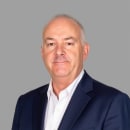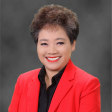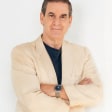Operational Excellence Speakers
You've got the agenda set, your audience lined up, but something's missing. You need a voice who can speak to process, performance, and precision.
But how do you find operational excellence speakers who actually know their stuff-and can share it in a way that keeps people engaged?
Hiring an operational excellence speaker isn't just about lean methods or Six Sigma. It's about finding someone who understands systems thinking, real organizational change, and how to turn complex frameworks into practical ideas your audience can act on.
Whether you're running a corporate summit, leading a podcast on business strategy, or building out a YouTube series on efficiency, the right speaker makes all the difference.
I've seen how much stronger events are when the speaker actually blends experience with clarity. You want someone who's not just an expert, but relatable. Someone with fresh stories, clear frameworks, and zero fluff.
So take a look through these operational excellence speakers. You might just find the right fit for your next event, panel, or interview.
Top Operational Excellence Speakers List for 2026
JR Gomez
Empowering teams to achieve excellence through digital strategies
Angelina Rivera
Transforming chaos into clarity, one minute at a time!
Aloysius Carl
Driving culture, ethics and innovation to transform business landscapes
Amber Cabral
Amber Cabral helps people human better at work and beyond.
Lee Coppin
Unlocking excellence within organizations for lasting success.
Consuela Muñoz
Driving employee engagement through leader engagement—turning leaders into crew captains, teams into crews, and goals into heists worth plan
Emily Letran
Transforming chaos into clarity for thriving business leaders
Brian Fippinger
Speaker, Best Selling Author, and former Improv Actor who had been coaching leaders for 46 years.
Matt Mueller
Best-selling author and innovation strategist helping leaders transform tomorrow by being in the now.
Steve A Klein
Empowering leaders and sales to unlock potential and drive Relentless Success!
What Makes a Great Operational Excellence Speaker
A great speaker in this space doesn't just rattle off metrics or frameworks. They translate Six Sigma, Kaizen, or Agile into relatable stories. For example, instead of explaining takt time in theory, they might share how a small manufacturer in rural India reduced waste by 40% using it. That's the kind of narrative that sticks.
They also know how to read the room. Whether it's a virtual summit or a live conference, they adjust their tone, pace, and content to match the audience. A group of startup founders in Berlin might need a different approach than a room full of supply chain managers in Ohio.
And finally, they're generous with insights. The best speakers don't gatekeep. They give away frameworks, templates, and real-world examples because they know the real value is in helping others take action. That's what separates a good talk from a transformative one.
How to Select the Best Operational Excellence Speaker for Your Show
1. Define Your Audience and Goals
- Are you speaking to lean practitioners, startup founders, or enterprise leaders?
- Do you want inspiration, tactical advice, or a mix of both?
- Example: A SaaS-focused summit might benefit from someone who's implemented Agile at scale, like someone from Atlassian or Spotify.
2. Research Speaker Profiles
- Use platforms like Talks.co to browse speaker pages.
- Look for videos, testimonials, and past event topics.
- Tip: Prioritize those who've spoken at events similar to yours in size and format.
3. Evaluate Content Fit
- Do they specialize in lean, Six Sigma, Agile, or another methodology?
- Can they tailor their message to your industry (e.g., healthcare vs. manufacturing)?
- Bonus: Check if they offer workshops or breakout sessions in addition to keynotes.
4. Connect with the Speaker
- Use Talks.co to message them directly or request a discovery call.
- Ask about their approach to customizing talks.
- Pro tip: Ask for a short video pitch or a sample clip to get a feel for their energy.
5. Confirm Logistics and Compatibility
- Are they available on your date?
- Do they have experience with your event format (virtual, hybrid, in-person)?
- Make sure they're comfortable with your tech stack (Zoom, StreamYard, etc.).
Following these steps helps you avoid mismatches and ensures your audience walks away with real value-not just buzzwords.
How to Book a Operational Excellence Speaker
1. Start with a Clear Brief
- Define your event's theme, audience, and goals.
- Include specifics like length of talk, format (keynote, panel, workshop), and whether it's live or pre-recorded.
2. Use a Speaker Platform
- Head to Talks.co and browse by category or keyword.
- Filter by availability, location, or speaking fee.
- Each speaker page includes bios, past talks, and ratings to help you decide.
3. Reach Out with Context
- When you contact a speaker, include your event brief.
- Mention why you think they're a good fit.
- Example: "We're hosting a virtual summit for mid-sized manufacturers in North America, and your work on lean transformations in the automotive sector really stood out."
4. Discuss Customization and Deliverables
- Ask how they tailor content to your audience.
- Clarify what's included: slides, Q&A, follow-up materials?
- Tip: Some speakers offer bonus content like templates or access to their online courses.
5. Finalize the Agreement
- Use a simple contract that outlines date, time, fee, cancellation terms, and tech requirements.
- Confirm rehearsal times if needed.
- Don't forget to ask for a headshot and short bio for your promotional materials.
By following this process, you'll not only book a speaker who delivers-you'll build a relationship that could lead to future collaborations.
Common Questions on Operational Excellence Speakers
What is a operational excellence speaker
These speakers typically have deep experience in methodologies like Lean, Six Sigma, Agile, or Total Quality Management. But more importantly, they know how to make those frameworks relevant to people outside the operations department. Whether they're speaking to a room of executives, a team of engineers, or a group of entrepreneurs, they tailor their message to resonate.
Unlike general business speakers, operational excellence speakers focus on the 'how' behind high performance. They might explain how a hospital reduced patient wait times using value stream mapping, or how a logistics company used root cause analysis to cut delivery errors in half. Their talks are often filled with real-world case studies and practical takeaways.
You'll find them at industry conferences, corporate summits, virtual events, and even internal company trainings. Some are academics, others are practitioners, and many are both. What unites them is their ability to inspire action through clarity, relevance, and credibility.
Why is a operational excellence speaker important
One reason they're so crucial is because operational challenges often go unnoticed until they become costly. A speaker can spotlight these blind spots in a way that's engaging, not accusatory. For example, a speaker might show how a simple Kanban board transformed a chaotic marketing team's workflow, making it relatable to non-technical teams.
They also help bridge silos. In large organizations, operations, sales, and product teams often speak different 'languages'. A skilled speaker can unify them around shared goals and processes. Think of someone like Karen Martin, who's known for making lean principles accessible across departments.
And let's not forget momentum. After a talk from a strong operational excellence speaker, teams often feel empowered to take the first step-whether it's mapping a process, running a retrospective, or launching a pilot. That initial spark can lead to lasting transformation.
In short, these speakers aren't just educators-they're activators. They help people see what's possible and give them the tools to make it happen.
What do operational excellence speakers do
- Educate on Methodologies. They explain frameworks like Lean, Six Sigma, Agile, and Theory of Constraints in ways that are easy to understand and apply.
- Share Case Studies and Best Practices. Whether it's a Japanese auto plant or a Canadian SaaS startup, they bring real-world examples that show how operational excellence works in practice.
- Facilitate Change Mindsets. They help teams shift from reactive to proactive thinking. For instance, instead of firefighting daily issues, teams learn to identify root causes and prevent problems altogether.
- Tailor Content to Diverse Audiences. From C-suite executives to frontline workers, these speakers adjust their message to resonate with different roles and industries.
- Offer Tools and Frameworks. Many provide templates, checklists, or diagnostic tools that attendees can use immediately. For example, a speaker might walk through a SIPOC diagram or a value stream map live during their session.
- Inspire Action. Perhaps most importantly, they motivate people to take the first step. Whether that's running a daily standup or launching a Kaizen blitz, they turn theory into momentum.
Their impact isn't limited to the stage. The best operational excellence speakers leave behind a ripple effect-teams that think differently, act faster, and improve continuously.
How to become a operational excellence speaker
1. Define Your Niche.
- Operational excellence is broad. Are you focused on manufacturing, healthcare, tech, or service industries? Specializing helps you stand out.
- Example: If you've led lean transformations in logistics, emphasize that. It's more compelling than general ops talk.
2. Build Your Expertise.
- Get certified in methodologies like Lean Six Sigma, Kaizen, or Agile.
- Stay updated on industry trends. Read case studies from companies like Toyota, Amazon, or GE.
- Speak at internal company events or local meetups to test your content.
3. Create a Signature Talk.
- Develop a compelling 30-60 minute keynote. Focus on outcomes, not just frameworks.
- Use real-world examples: "How a $10M manufacturer cut waste by 40% in 6 months."
- Include visuals, data, and a clear call to action.
4. Build Your Speaker Page.
- Use a platform like Talks.co to create a professional speaker profile.
- Include your bio, talk topics, testimonials, and a video reel.
- Make it easy for event organizers to book you.
5. Network with Hosts and Organizers.
- Reach out to podcast hosts, webinar organizers, and conference planners.
- Use LinkedIn and Talks.co to connect with people booking speakers.
- Offer to speak for free initially to build your portfolio.
6. Collect Feedback and Refine.
- After each talk, ask for feedback. What resonated? What didn't?
- Update your slides and delivery based on audience reactions.
7. Scale Your Presence.
- Start charging for talks. Add workshops, consulting, or online courses.
- Speak internationally or virtually to expand reach.
This path isn't overnight, but if you're consistent and strategic, you'll build a reputation that gets you booked again and again.
What do you need to be a operational excellence speaker
1. Deep Subject Matter Expertise
Operational excellence is rooted in methodologies like Lean, Six Sigma, and continuous improvement. You should have hands-on experience applying these in real-world settings. Whether you've led a transformation in a hospital or optimized a supply chain in retail, your insights need to be grounded in results.
2. A Unique Point of View
What's your angle? Maybe you focus on cultural transformation, or perhaps you're all about data-driven decision-making. Your perspective should be distinct. Audiences don't want a textbook lecture-they want stories, frameworks, and takeaways they can apply.
3. Strong Communication Skills
You don't need to be a TED Talk veteran, but you do need to engage. That means clear articulation, confident delivery, and the ability to adjust your message for different audiences-from C-suite execs to frontline teams.
4. A Platform to Showcase Yourself
This is where Talks.co comes in. Having a speaker page with your bio, topics, testimonials, and videos makes it easy for hosts to find and book you. It's your digital storefront.
5. A Network of Hosts and Events
You'll need to proactively connect with podcast hosts, conference organizers, and corporate training leads. Talks.co helps bridge that gap by matching speakers with the right stages.
In short, to be an operational excellence speaker, you need a mix of credibility, clarity, and connection. If you've got the expertise and the drive, the rest is about positioning and outreach.
Do operational excellence speakers get paid
Market Demand
Operational excellence is a hot topic in industries like manufacturing, logistics, healthcare, and tech. Companies are constantly looking for ways to improve efficiency, reduce waste, and boost performance. That means there's a steady demand for speakers who can deliver actionable insights.
Experience and Reputation
New speakers might start with free gigs or honorariums under $1,000. But seasoned experts-especially those with published books, high-profile case studies, or media appearances-can command $5,000 to $25,000 per keynote.
Event Type
- Internal corporate events: Often pay well, especially for workshops or strategy sessions.
- Industry conferences: May offer lower fees but higher visibility.
- Virtual summits: Typically lower fees but easier to scale.
Geography and Industry
In North America and Western Europe, speaking fees tend to be higher. In emerging markets, the pay may be lower but opportunities for consulting or training often follow.
Pros and Cons
- Pros:
- High earning potential for top-tier speakers.
- Opportunities to upsell consulting or training.
- Cons:
- Competitive field.
- Inconsistent income if not diversified.
So yes, operational excellence speakers do get paid-but the key is building a brand and portfolio that justifies your fee.
How do operational excellence speakers make money
1. Paid Speaking Engagements
- Keynotes at conferences, corporate retreats, and industry events.
- Workshops and breakout sessions for leadership teams.
2. Consulting Services
Many speakers offer follow-up consulting to help organizations implement the strategies they speak about. For example, after a talk on lean transformation, a speaker might be hired to lead a 3-month implementation project.
3. Online Courses and Memberships
Speakers often package their frameworks into online courses. Platforms like Kajabi or Teachable allow them to reach a global audience. Some even create membership communities for ongoing support.
4. Books and Publications
Publishing a book not only builds credibility but also generates royalties. Think of it as a business card that pays you back.
5. Licensing Content
Some speakers license their training materials to companies or other consultants. This creates passive income without additional travel or delivery time.
6. Affiliate and Sponsorship Deals
If they have a strong online presence, speakers can earn through affiliate marketing or brand partnerships. For example, promoting a software tool that supports operational excellence.
7. Virtual Events and Webinars
With platforms like Zoom, speakers can host or be featured on virtual summits. These may be paid gigs or lead generators for other services.
In short, operational excellence speakers make money by combining speaking with scalable products and services. The most successful ones treat it like a business, not just a gig.
How much do operational excellence speakers make
| Experience Level | Typical Fee per Talk | Annual Income Range |
|---|---|---|
| Beginner | $0 - $1,000 | $5,000 - $20,000 |
| Mid-Level | $1,000 - $5,000 | $30,000 - $100,000 |
| Expert/Author | $5,000 - $15,000 | $100,000 - $300,000 |
| Celebrity/Top Tier | $15,000 - $50,000+ | $300,000 - $1M+ |
- Niche Focus: Speakers who specialize in high-impact industries like aerospace or pharma often earn more.
- Geographic Reach: Those who speak globally or virtually can scale faster.
- Product Ecosystem: Speakers who sell courses, books, or consulting services alongside talks can double or triple their income.
Example: A speaker who gives 20 talks a year at $5,000 each earns $100,000 from speaking alone. Add a $2,000/month consulting retainer with 3 clients, and that's another $72,000 annually.
So while some make a modest side income, others build six- or seven-figure businesses. It all depends on how you structure your offerings and scale your reach.
How much do operational excellence speakers cost
1. Speaker Experience and Reputation
- Emerging Speakers: $500 - $2,000 per talk. Often newer to the circuit, but may offer fresh insights or niche expertise.
- Established Experts: $3,000 - $10,000. These speakers often have books, case studies, or media appearances.
- Top-Tier Thought Leaders: $15,000 - $50,000+. These are best-selling authors or globally recognized consultants.
2. Type of Event
- Internal Corporate Training: Usually higher fees due to customization.
- Industry Conferences: May pay less but offer exposure.
- Virtual Events: Often 30-50% less than in-person due to lower overhead.
3. Add-ons and Deliverables
- Workshops, breakout sessions, or follow-up consulting can increase the total cost.
- Travel and accommodation are typically extra unless negotiated.
4. Booking Platform
- Booking through platforms like Talks.co can simplify the process and ensure transparent pricing.
Sample Pricing Table:
| Speaker Tier | In-Person Fee | Virtual Fee |
|---|---|---|
| Newcomer | $1,000 | $500 |
| Mid-Level Expert | $5,000 | $3,000 |
| Global Authority | $25,000 | $15,000 |
Who are the best operational excellence speakers ever
- Dr. W. Edwards Deming. Often called the father of quality management. His 14 Points for Management revolutionized manufacturing in Japan and later globally.
- Taiichi Ohno. The architect of the Toyota Production System. While not a traditional speaker, his teachings have been quoted and studied by countless speakers worldwide.
- James P. Womack. Co-author of 'The Machine That Changed the World' and founder of the Lean Enterprise Institute. His work brought lean thinking to the West.
- Shigeo Shingo. Known for developing Poka-Yoke (error-proofing) and SMED (Single-Minute Exchange of Die). His influence is foundational in lean circles.
- Peter Drucker. While more of a management theorist, his insights into organizational effectiveness have been quoted by operational excellence speakers for decades.
- Michael Hammer. Pioneer of business process reengineering. His ideas reshaped how companies think about workflows and efficiency.
- Karen Martin. A modern voice in operational excellence, known for her clear frameworks and practical approach to lean leadership.
- Art Byrne. Former CEO of Wiremold and author of 'The Lean Turnaround'. His case studies are often cited in talks.
- John Shook. Former Toyota executive and CEO of the Lean Enterprise Institute. Known for making lean thinking accessible.
These speakers and thinkers have left a lasting legacy. Their ideas continue to influence how operational excellence is taught and applied today.
Who are the best operational excellence speakers in the world
- Karen Martin (USA). Author of 'Clarity First' and 'The Outstanding Organization'. Known for her engaging talks on lean leadership and organizational clarity.
- Dr. Jeffrey Liker (USA). Author of 'The Toyota Way'. A go-to speaker for companies looking to adopt lean principles at scale.
- Dr. Gwendolyn Galsworth (USA). Expert in visual workplace systems. Her talks are a masterclass in how visual management drives excellence.
- Bodo Wiegand (Germany). A leading voice in lean management across Europe. Known for his work in automotive and manufacturing sectors.
- Ramesh Dorairaj (India). A rising voice in operational excellence in Asia, especially in IT and service industries.
- Tracey Richardson (USA). Former Toyota team member turned speaker and trainer. Focuses on lean culture and leadership.
- Mark Graban (USA). Author of 'Lean Hospitals' and host of the Lean Blog podcast. A favorite in healthcare and service industries.
- Pascal Dennis (Canada). Author of 'Getting the Right Things Done'. His talks blend storytelling with practical lean tools.
- Debashis Sarkar (India). Known for his work in service excellence and lean transformation in banking and telecom.
- Tilo Schwarz (Germany). Focuses on Kata coaching and lean leadership development.
These speakers bring a mix of academic rigor, real-world experience, and global perspective. Whether you're running a factory in Detroit or a hospital in Mumbai, there's someone on this list who speaks your language.
Common myths about operational excellence speakers
1. Myth: Operational excellence speakers only talk about manufacturing or Six Sigma.
This is a narrow view. While lean manufacturing and Six Sigma are part of the conversation, operational excellence spans industries-from healthcare to fintech to logistics. Take Karen Martin, for example. She's spoken extensively on leadership and strategy in service-based industries, not just factories. The best speakers tailor their message to the audience, whether it's a hospital board or a SaaS startup team.
2. Myth: You need to be a retired executive to be taken seriously.
Not true. While experience matters, many impactful speakers are consultants, authors, or even startup founders who've built systems from scratch. Think of someone like Mike Rother, who gained prominence not by climbing a corporate ladder but by studying Toyota's practices and teaching them globally. What matters is insight, not job titles.
3. Myth: They just deliver theory, not actionable advice.
The best operational excellence speakers are all about implementation. They bring frameworks, case studies, and step-by-step methods. For instance, Dr. Jeffrey Liker doesn't just explain the Toyota Way-he breaks down how to apply it in real-world teams. If a speaker isn't giving you tools you can use Monday morning, they're missing the point.
4. Myth: It's all about efficiency and cost-cutting.
Operational excellence is just as much about culture, leadership, and long-term sustainability. Speakers often tackle topics like employee engagement, cross-functional collaboration, and customer-centric design. In fact, many argue that true excellence starts with empowering people, not trimming budgets.
5. Myth: Only large corporations need operational excellence.
Small businesses, nonprofits, even solopreneurs can benefit from these principles. Speakers like Paul Akers have made a name helping small teams implement lean thinking. Whether you're running a bakery or a blockchain startup, operational excellence can help you scale smarter, not just faster.
Case studies of successful operational excellence speakers
Take Shingo Prize winner Pascal Dennis. He started as an engineer on the shop floor and eventually became a global consultant. His talks blend storytelling with hard-earned lessons from working with companies like Toyota and Bombardier. At a recent summit, he walked through how a Canadian hospital reduced patient wait times by 40% using lean principles-no jargon, just real results.
Then there's Tracey Richardson, a former Toyota team member turned speaker and coach. She doesn't just talk about lean thinking-she lived it. Her sessions are packed with stories from her time on the floor at Toyota's Kentucky plant. One of her most memorable talks detailed how a simple visual management system helped reduce errors in a high-pressure environment. It wasn't flashy, but it was powerful.
In Southeast Asia, speaker and author Tanmay Vora has carved out a niche by blending operational excellence with digital transformation. His talks often highlight how Indian SMEs (small and medium enterprises) can adopt agile practices without massive budgets. One case he shared involved a textile company in Surat that used daily huddles and kanban boards to cut lead times by 30%.
And don't overlook speakers like Elisabeth Swan, who brings humor and interactivity to what could be dry topics. At a virtual conference, she walked attendees through a real-time value stream mapping exercise using a fictional coffee shop. It was fun, but also deeply educational-attendees left with a clear framework they could apply immediately.
These speakers succeed not because they stick to a script, but because they connect. They bring operational excellence to life through stories, examples, and a deep understanding of human behavior. That's what makes them stand out.
Future trends for operational excellence speakers
One major trend is the integration of digital tools into operational excellence narratives. Speakers are increasingly expected to address how AI, automation, and data analytics fit into lean and continuous improvement strategies. For example, more talks now include how predictive analytics can reduce downtime or how digital twins are reshaping supply chain optimization.
Another shift: the demand for cross-functional relevance. It's no longer enough to speak to operations teams alone. Event organizers want speakers who can connect the dots between ops, marketing, HR, and finance. This means speakers need to broaden their stories and examples to resonate with diverse audiences.
Diversity and inclusion are also becoming central themes. Audiences want to hear from speakers who reflect different backgrounds and who can speak to operational excellence in varied cultural or regional contexts. This opens the door for voices from Latin America, Africa, and Southeast Asia to bring fresh perspectives to global stages.
Here are a few key trends to watch:
- Tech-augmented excellence. Expect more talks on integrating AI, IoT, and machine learning into process improvement.
- Remote ops strategies. With hybrid teams here to stay, speakers are exploring how to maintain excellence across distributed teams.
- Sustainability as a KPI. Operational excellence is being tied to ESG goals, not just efficiency.
- Microlearning formats. Short, high-impact talks and workshops are gaining ground over long keynotes.
- Interactive delivery. Live polling, breakout simulations, and co-creation sessions are replacing passive lectures.
In short, the future of operational excellence speaking is more digital, more inclusive, and more integrated. Speakers who adapt to these shifts will stay relevant and in demand.
Tools and resources for aspiring operational excellence speakers
1. Talks.co. This is a smart platform that matches speakers with podcast hosts. Great for building your authority and getting your message out to niche audiences. Tip: Use it to test different angles of your talk before hitting the big stage.
2. Lean Enterprise Institute. A goldmine of case studies, webinars, and publications. If you're looking to deepen your content or cite credible examples, this is the place. Their community forums are also a great spot to connect with like-minded professionals.
3. Slidebean. Not a designer? No problem. This tool helps you create clean, professional slide decks fast. Ideal for speakers who want to focus on content, not formatting. Bonus: You can A/B test your slides to see what resonates.
4. Zoom Events. If you're running your own virtual sessions or workshops, Zoom Events gives you more control over registration, branding, and engagement. Use it to host your own mini-summits or training days.
5. Notion. Organize your speaking topics, client notes, and workshop materials in one place. You can even create a public speaker page with your bio, topics, and booking info.
6. Coursera - Leading Operational Excellence. This course from the University of Illinois gives you a structured foundation. Even if you're already experienced, it helps you frame your knowledge in a way that's teachable.
7. Typeform. Use this to gather feedback after your sessions. Ask what resonated, what didn't, and what people want more of. It's a simple way to continuously improve your delivery.
8. LinkedIn Creator Mode. Turn on Creator Mode to highlight your speaking topics, grow your following, and attract event organizers. Post short clips from your talks to build credibility.
Whether you're just starting out or looking to level up, these tools can help you build a sustainable speaking practice that delivers real value. Combine them with a clear message and consistent outreach, and you'll be on your way to becoming a sought-after name in operational excellence.









